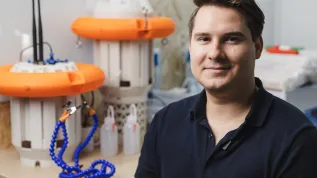
Polish companies in scientific consortia, working, for example, on the use of AI in complex economic, industrial and even agricultural problems, can apply for grants from the European agency EISMEA, says Jerzy Respondek, a Polish expert who evaluates applications.
In March, Dr. Jerzy Respondek, a numeric methods expert from the Silesian University of Technology, was appointed an expert of EISMEA, the EU agency that supports enterprises. In April, he started working on a business assessment of applications in his research area.
According to the researcher, the role of the European Innovation Council and SMEs Executive Agency (EISMEA) in Europe is similar to the role of the National Centre for Research and Development in Poland. The agency provides financial support to small and medium-sized enterprises and helps them find partners at universities and in research institutes. The purpose of such collaboration is to use basic research results in practice, until full market implementation. Before awarding a grant, representatives of the applying companies meet with experts at the EISMEA headquarters in Brussels, internet panels are also held.
The agency's priorities are three implementation areas for basic research results: digital technologies, health technologies and green technologies. Polish IT specialist reviews projects that involve the use of artificial intelligence (AI) in various fields of industry and economy.
'These include projects that concern the construction of a European RISC processor, or creating semiconductor processes for the production of next generation integrated circuits for devices like smartphones. Artificial intelligence can help predict climate change, which is necessary for agricultural applications, such as the arrangement of crops or planning animal breeding. A very interesting application area for machine learning is remote image recognition; in this case, AI may perform remote inspections in industrial plants and assess whether the structures are consistent with technical drawings, for example in engine manufacturing', Respondek says.
The scientist is an associate professor at the Department of Applied Computer Science, Faculty of Automatic Control, Electronics and Computer Science of the Silesian University of Technology. He cooperated with the National Centre for Research and Development, also as the chairman of the International Appeals Commission. He encourages Polish innovators - not only from the area of computer science and numerical systems - to apply for grants to at the European level.
Projects are evaluated in terms of innovation and the level of technological advancement, social impact, business features and market opportunities in the common European market.
'The applicants who are now applying to EISMEA will soon market their products', the Polish expert says.
PAP - Science in Poland, Karolina Duszczyk
kol/ zan/ kap/
tr. RL













